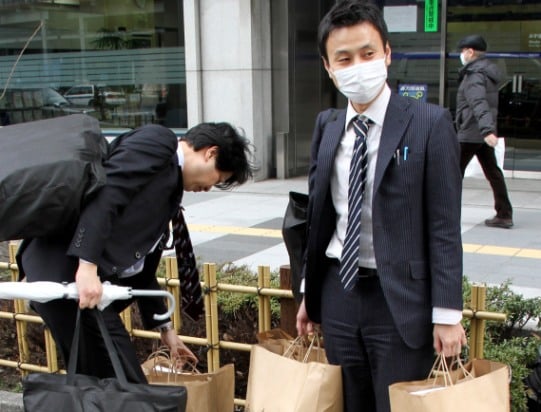In the face of powerful aftershocks and rolling power outages, financial services firms with offices in Tokyo are scrambling to stay on top of events in the wake of Friday's 9.0 magnitude earthquake north of the city — as well the specter of radioactive contamination.
“We are literally monitoring the situation on an hour-by-hour basis,” said Chuck Freadhoff, a spokesman for The
Capital Group Cos., which has 75 employees in its Tokyo office.
Capital Group, which owns the American Funds, is keeping its research office open “intermittently,” due to power outages and aftershocks, Mr. Freadhoff said. “We are making decisions based on what the building managers tell us,” he said.
The firm is accommodating requests from employees who want to work from home or temporarily relocate to other offices, he said.
Executives at another multinational firm with over 100 employees in Tokyo are considering relocating the office to Singapore due to the quake, according to an employee, who requested to remain anonymous.
On Tuesday, another sizable aftershock — this one measuring 6.1 in magnitude — rocked Honshu, the largest of Japan's islands. In addition, explosions at a major nuclear power plant in Fukushima have raised concerns about a possible meltdown at that plant. To calm nervous investors, the International Bankers Association issued a statement today emphasizing that it's “business as usual” for major foreign financial institutions in Japan.
“Despite rumors to the contrary, none of the undersigned firms have announced any business closures or evacuations of staff,” the statement read. Those firms include Merrill Lynch Japan Securities Co. Ltd., Goldman Sachs Japan and J.P. Morgan Japan.
Morgan Stanley's 1,800 employees in Japan were safely evacuated Friday, and as of this morning, the office remained open, said Sandra Hernandez, a spokeswoman for the bank. The Wall Street giant is working with employees on a case-by-case basis if they need to work remotely.
Similarly, Goldman Sachs' Tokyo office “is operating as normal,” said Stephen Cohen, a spokesman. “Our approach to contingency planning and travel is consistent with Japanese government advice,” he said in a statement. He declined to comment on how many employees Goldman has in Tokyo.







